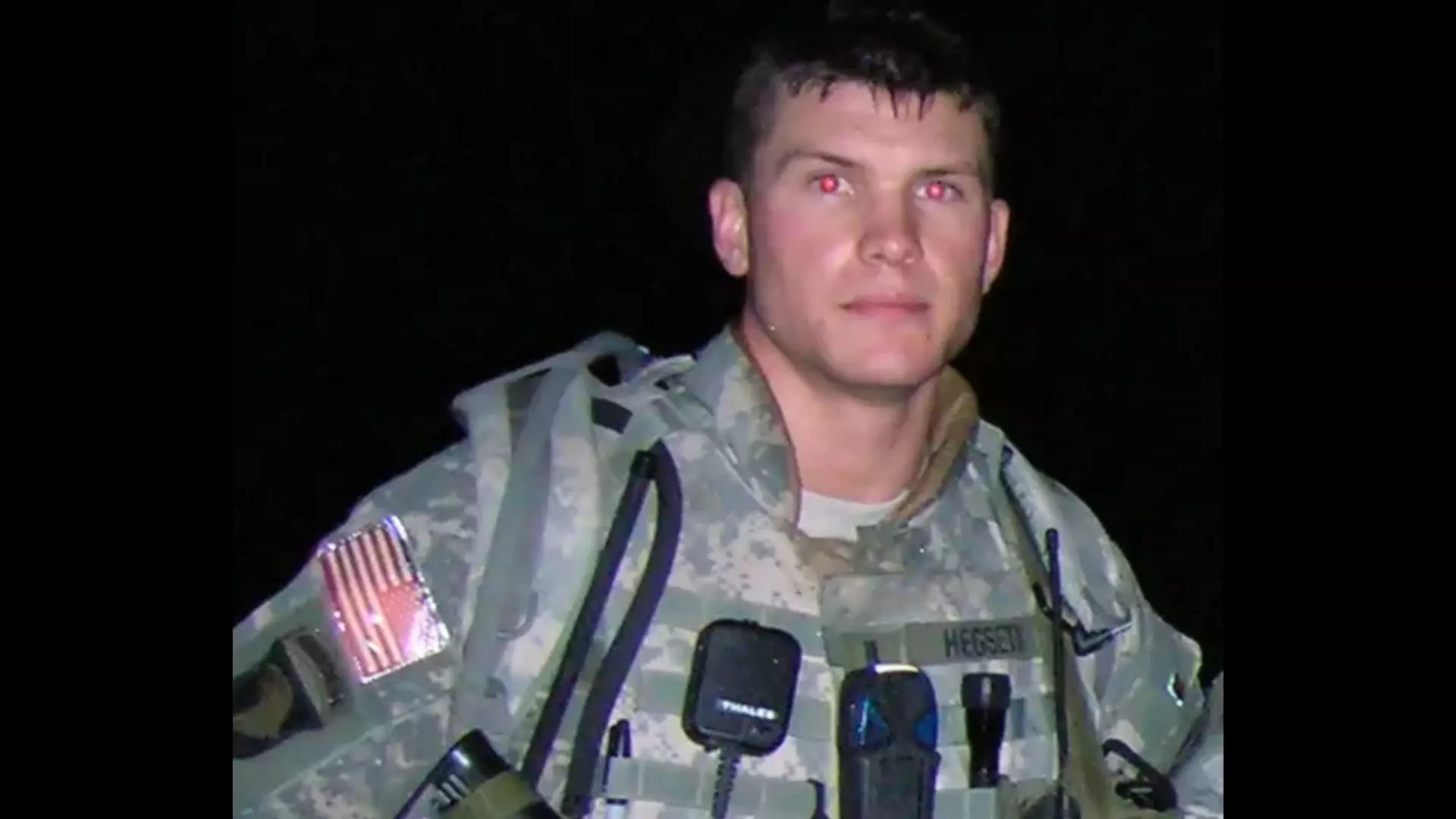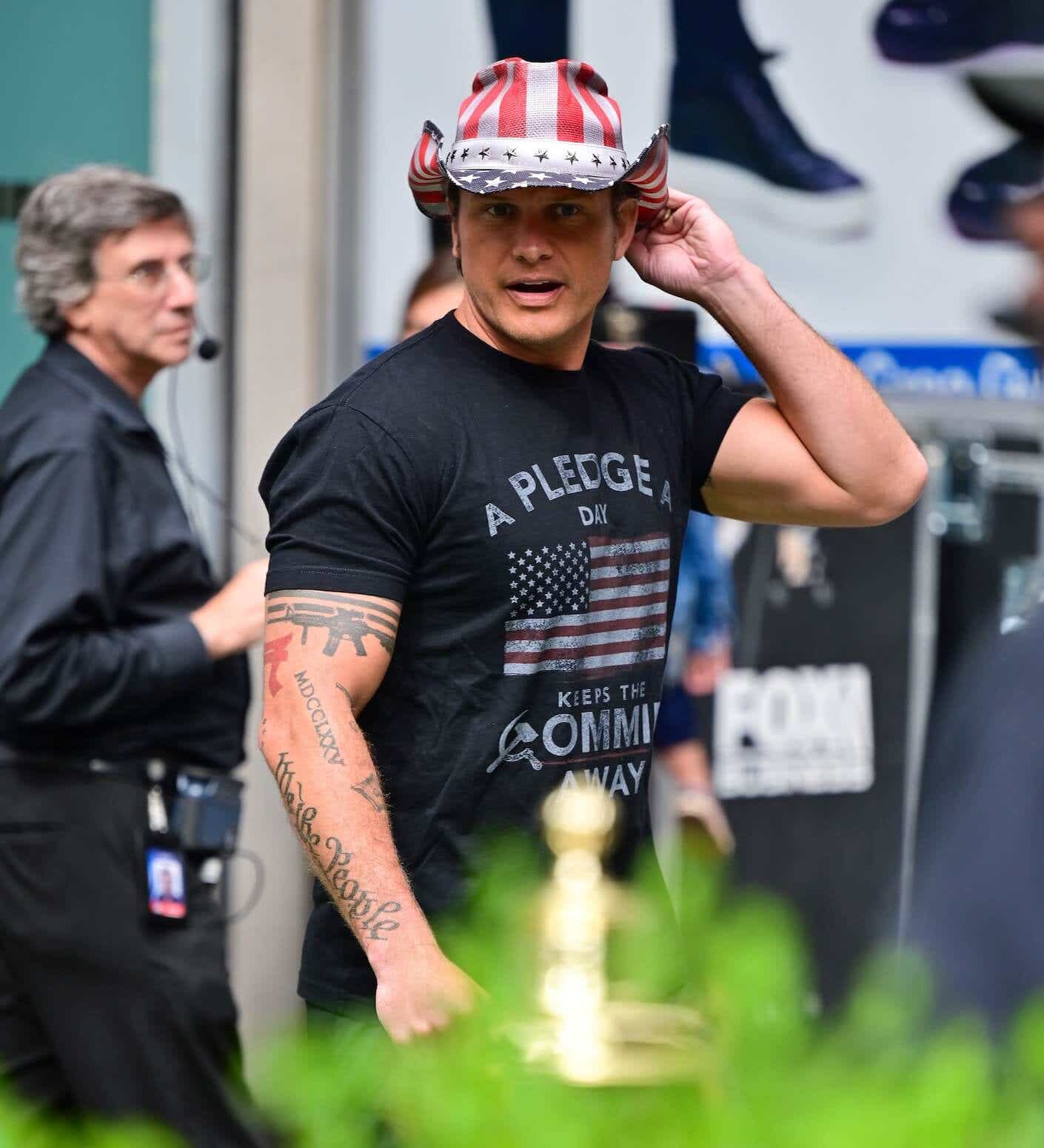Can a political commentator, a man with a background in television, truly lead the United States military? The nomination of Pete Hegseth as Secretary of Defense, a role he assumed in 2025, has sparked a national conversation, forcing a reevaluation of what constitutes leadership in the 21st century, and is a clear example of a departure from traditional norms.
The appointment of Pete Hegseth as Secretary of Defense in January 2025, came as a surprise to many. His previous career, a blend of political commentary and television presenting on Fox News, seemed a world away from the corridors of the Pentagon. Yet, former President Donald Trump, in a move that raised eyebrows across the political spectrum, entrusted Hegseth with the leadership of the nation's armed forces. The choice highlighted a shift in the criteria for high-level government appointments, prioritizing perceived loyalty and media visibility over traditional experience.
| Pete Hegseth: A Biographical Overview | |
|---|---|
| Full Name: | Peter Brian Hegseth |
| Date of Birth: | June 6, 1980 |
| Education: | Princeton University (B.A. in Politics, 2003) |
| Military Service: | U.S. Army National Guard (2003-2016) |
| Rank: | Major (Army Individual Ready Reserve) |
| Deployments: | Guantanamo Bay, Iraq, Afghanistan |
| Political Affiliation: | Conservative |
| Career Highlights: |
|
| Reference: | Wikipedia: Pete Hegseth |
Hegseth's journey to the Pentagon began long before his nomination. A graduate of Princeton University in 2003, where he studied politics and contributed to the conservative student newspaper "The Princeton Tory," he was commissioned into the Army National Guard. His military career, though not extensive in terms of years of active duty, included deployments to Guantanamo Bay, Iraq, and Afghanistan. He served as an infantry officer, rising to the rank of captain before leaving active duty. He then was promoted to major and assigned to the Army Individual Ready Reserve (IRR).
His military experience, while present, lacks the depth of seasoned military leaders. It's a point frequently raised in criticisms of his appointment. Some political analysts and military experts questioned whether his background adequately prepared him for the complex challenges of national security and global military strategy. The role of Secretary of Defense requires a deep understanding of military operations, international relations, and the nuances of geopolitical strategy. Some were concerned that Hegseth's experience was more focused on veterans advocacy and media commentary than strategic leadership and command.
Before his appointment as Secretary of Defense, Hegseth was a prominent voice on Fox News, known for his outspoken conservative views. He leveraged his military background to comment on veteran's issues and national security matters. He was also the executive director of Concerned Veterans for America and Vets for Freedom, advocacy groups that further solidified his presence within conservative circles. This dual role commentator and advocate proved a critical component of his public profile and likely, a key factor in his selection for the Cabinet position.
The nomination, announced on November 12, 2024, by then-President Trump, was met with a mixed response. Supporters lauded his perceived patriotism and his strong support for the military. Trump, in his endorsement, stated his confidence that Hegseth would "make our military great again." However, critics expressed concerns that he lacked the necessary experience to effectively oversee the nation's military. Several individuals raised concerns about his lack of experience in national security.
The transition from television personality to head of the Department of Defense posed immediate challenges. Hegseth was stepping into an arena defined by intricate protocols, seasoned military professionals, and complex national security concerns. How would he navigate these complex dynamics? What kind of impact would his lack of deep military or national security expertise have on the department?
The early days of his tenure were marked by a series of key appointments and policy changes. Hegseth's team included some of his trusted advisors, many of whom shared his political views. This move, while aligning with his vision, also raised concerns about potentially politicizing the military. The focus on political alignment raised questions about meritocracy and whether the priorities of the Pentagon would truly serve the United States' long-term national interests.
One of the earliest challenges Hegseth faced was the evolving global security landscape. The rise of new threats, the complexities of international alliances, and the emergence of unconventional warfare presented considerable challenges to his office. He had to oversee U.S. military operations across the globe, managing troop deployments, resource allocations, and strategic partnerships.
Another critical issue confronting Hegseth was the modernization of the armed forces. He had to ensure that the U.S. military stayed at the forefront of technological advancements in the fields of cyber warfare, artificial intelligence, and space. This involved a constant balancing act between innovation, resource allocation, and readiness.
Hegseth's tenure, as expected, placed a renewed emphasis on veterans' issues. He initiated programs focused on providing mental health services, job training, and other support systems to veterans. His commitment to veteran's affairs helped to consolidate his support among the active military and veteran community.
However, these initiatives have also faced criticism. Some have questioned the effectiveness of these programs and whether they adequately address the complex issues facing veterans. Another concern highlighted by his critics focused on whether these initiatives were effectively implemented across the board.
The debates sparked by Hegseth's appointment have transcended the individual and touched on broader themes concerning the criteria for public service, especially in critical positions. The choice of a commentator and political analyst rather than a seasoned military strategist to lead the Pentagon raises the questions of the requirements for those high-level government positions.
It also brings up the issue of the impact of media and political commentary on the publics perception of government institutions. How do these sources of information shape the public's understanding of national security? What responsibility do media personalities and political commentators have when they occupy key governmental positions? These are questions that will likely be the subject of ongoing debate for the foreseeable future.
The response to Hegseth's leadership has also included discussions on the role of military experience in contemporary leadership and its importance in an ever-changing world. The debate centers on the value of technical competence, strategic vision, and adaptability in leadership. The lack of experience in the military, as some believe, could be offset by a strong administrative team and a willingness to listen to various perspectives.
Hegseths career trajectory, from a soldier in the Army National Guard to a media personality, and then to the Secretary of Defense, reflects the evolution of modern political discourse. His story, and those of other high-profile individuals who have followed a similar path, suggest a trend towards a more integrated relationship between media, politics, and government service. This trend has brought about a re-evaluation of the traditional pathways to public service and the qualifications deemed essential for leadership in the 21st century.
Hegseth's time as Secretary of Defense will be studied for years to come. His career is a reflection of our current age, where media presence and political loyalties may be considered as important as the long-held traditions of military leadership and operational know-how. His legacy will depend on how effectively he navigates the complexities of global conflict, addresses the needs of the armed forces, and adapts to the evolving challenges to the nation's security.


